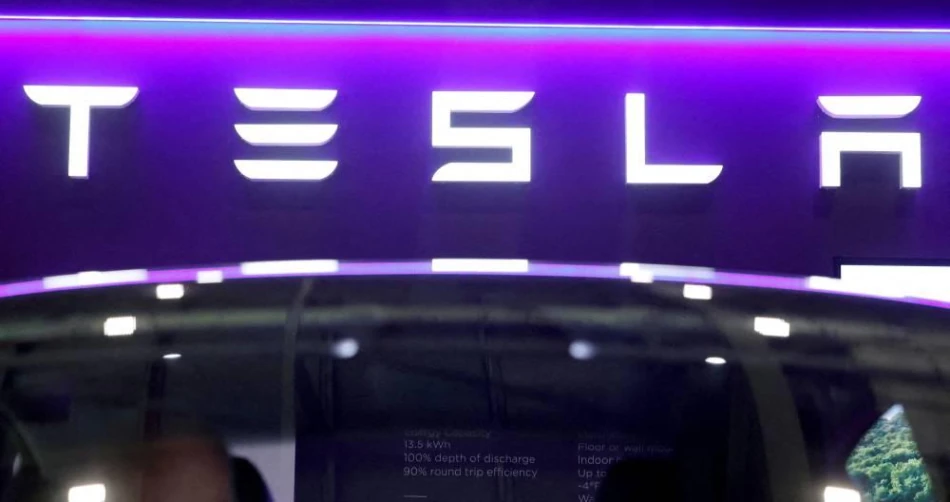
Tesla and Samsung Ink $16.5B Chip Production Deal
Samsung Lands $16.5 Billion Tesla AI Chip Deal, Signaling Strategic Shift in Semiconductor Race
Samsung Electronics has secured a massive $16.5 billion contract to manufacture artificial intelligence semiconductors for Tesla through 2033, marking a pivotal moment for the South Korean tech giant's struggling foundry business and Tesla's ambitious AI expansion plans. The deal represents one of the largest semiconductor manufacturing agreements in recent years and could reshape competitive dynamics in the AI chip market.
Deal Structure and Financial Impact
The agreement, valued at 22.8 trillion won, extends until the end of 2033 and provides Samsung's foundry division with much-needed momentum after years of underperformance against industry leader TSMC. Market reaction was immediate and positive, with Samsung shares jumping 5% in Seoul trading to reach their highest levels since September.
Tesla CEO Elon Musk announced plans to establish a dedicated production facility in Taylor, Texas, specifically for manufacturing next-generation AI6 chips. This represents Tesla's continued vertical integration strategy, following the company's pattern of bringing critical components in-house to reduce supply chain dependencies.
Strategic Implications for Both Companies
Samsung's Foundry Revival
This contract provides Samsung with a crucial lifeline for its foundry operations, which have struggled to compete with Taiwan Semiconductor Manufacturing Company (TSMC) in advanced chip production. The deal validates Samsung's technological capabilities in AI semiconductor manufacturing and could attract additional customers who have been hesitant to diversify away from TSMC.
The partnership also demonstrates Samsung's willingness to work closely with customers on production optimization. Musk emphasized the strategic importance of the deal on X (formerly Twitter), noting that Samsung has authorized him to help improve production processes—an unusual level of collaboration that suggests both companies view this as more than a typical supplier relationship.
Tesla's AI Ambitions
For Tesla, securing dedicated chip production capacity addresses a critical bottleneck in scaling its AI capabilities across autonomous driving, robotics, and energy storage systems. The Texas facility will focus on AI6 chips, indicating Tesla's roadmap extends well beyond current AI5 technology used in its Full Self-Driving systems.
Market Context and Competitive Landscape
This deal occurs amid intensifying competition in AI chip manufacturing, where geopolitical tensions have made supply chain diversification a strategic priority. While NVIDIA dominates AI chip design, the manufacturing landscape remains concentrated among a few key players, with TSMC holding the largest market share.
Samsung's success in landing this contract demonstrates the growing demand for alternatives to TSMC, particularly as companies seek to reduce concentration risk. Similar diversification strategies have emerged across the semiconductor industry, with companies like Intel and GlobalFoundries also positioning themselves as alternatives for critical chip production.
Long-term Industry Impact
The nine-year contract duration signals both companies' confidence in sustained AI demand growth and provides Samsung with the revenue visibility needed to justify significant capital investments in advanced manufacturing capabilities. This stability could enable Samsung to close the technology gap with TSMC more effectively than previous attempts.
For the broader semiconductor industry, Tesla's commitment to a single foundry partner for nearly a decade represents a shift from the typical multi-sourcing strategies most companies employ. This approach mirrors Tesla's broader philosophy of deep partnerships with key suppliers, as seen in its battery supply agreements with Panasonic and CATL.
The deal also reinforces the trend of major technology companies designing their own chips rather than relying on general-purpose processors, following the path established by Apple, Google, and Amazon in developing custom silicon for their specific applications.
Most Viewed News

 Omar Rahman
Omar Rahman






